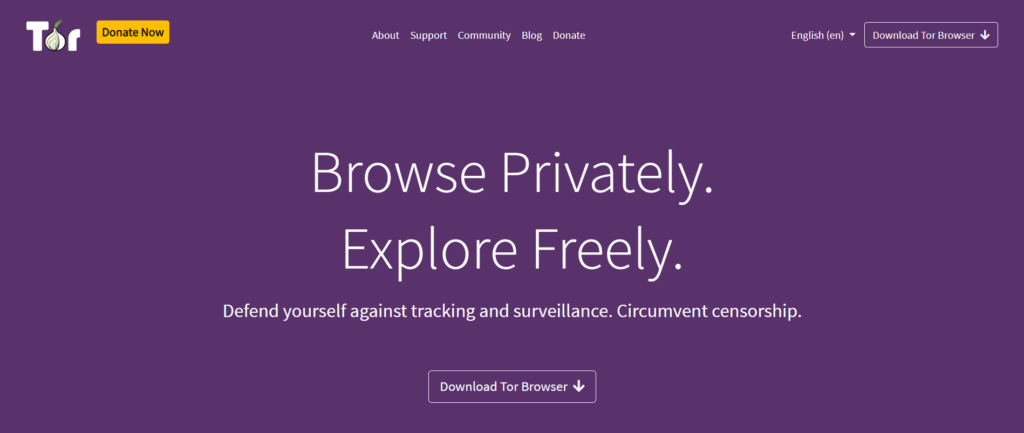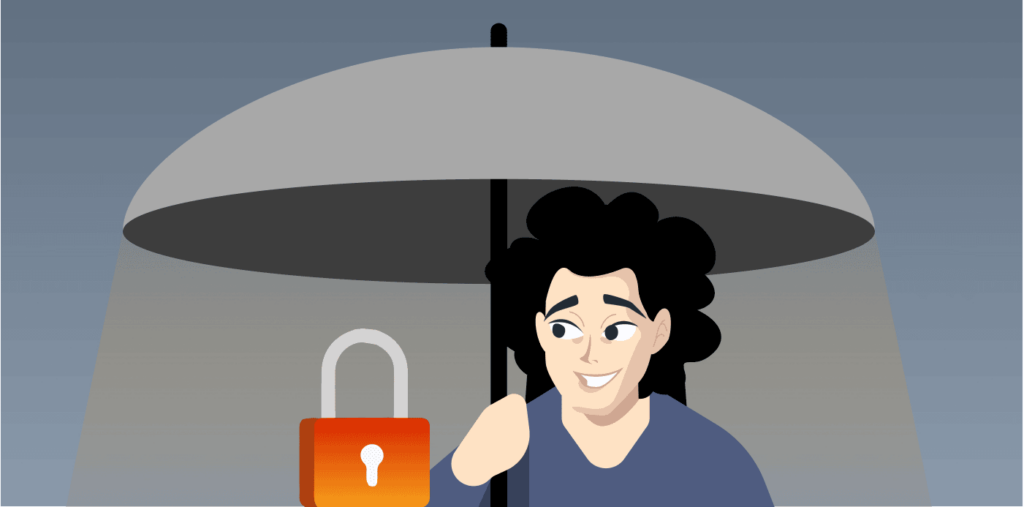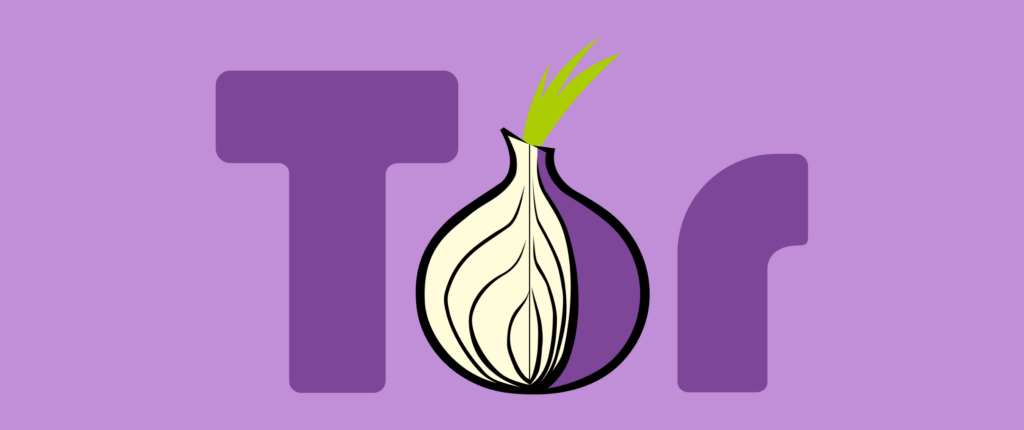Tor browser allows internet geeks to stay private and anonymous online. It implements a unique mechanism (using nodes) to encrypt users’ traffic. These nodes are virtual servers that establish a secure network to browse the web. Tor is often associated with the dark web and illegal activity, so there are many legal concerns surrounding it.
So, is Tor legal? To put it simply, it is. However, you may get into problems if you use it for illicit purposes like drug trafficking or downloading pornographic material. That’s not just all. Tor browser and network is prohibited in several countries, including China, South Africa, Russia, and Iran, so you’ve to check your country’s laws and regulations.
In this article, we’ll discuss everything about Tor, including its capabilities and limitations. You will learn how Tor functions, how it compares to VPN services, and what essential safety measures you should take while using it.
Is Tor Browser Legal?

Yes, the Tor browser, also called Onion Router, is completely legal to use, download, or install. It’s just a privacy tool well-known for its anonymous web browsing abilities. Tor is an open-source project that many people use to conduct their activities. For instance, human rights activists and journalists use it to hide their IP address.
However, the legality of Tor generally depends on the purpose you’re using it for. Legal activities like regular web browsing or content streaming aren’t a concern in most countries.
However, the Tor browser is commonly linked to the dark web, a place most people access to conduct unlawful pursuits.
Here are some illegal activities performed on the dark web through Tor:
- Human trafficking
- Selling drugs and psychotropic substances
- Infecting devices with various types of viruses, such as killware and worms
- Sharing sexually explicit content, ranging from child porn to revenge pornography
- Buying and selling of stolen credentials, like credit cards and account information
All these actions can lead to legal consequences.
Is Tor Legal to Use in the US?
Yes, you can use Tor legally in the US. You can use it without getting in any trouble. But that doesn’t mean you can do whatever you want. If you use Tor for buying drugs or weapons, you will get caught and punished for this act.
What Does Tor Do?
The Tor Browser works similarly to any standard web browser, like Google Chrome or Firefox. The only difference is in the startup process, as Tor first connects to its special network to keep you anonymous. Once that’s done, you can browse the internet normally as you do on other browsers.
When you use Tor to surf the web, your IP address and other system details remain hidden from the websites you visit. Furthermore, it safeguards your online activities from ISP monitoring.
Tor serves several essential benefits. Some of them are:
- Visiting websites anonymously
- Bypassing censorship and surveillance
- Accessing Tor hidden services (.onion sites)
Is Tor Browser Safe and Private?

Tor plays a crucial role in creating a safer and private internet. It helps users to stay safe from the surveillance of hackers, governments, or employers — giving you the right to publish and freedom of speech.
However, Tor isn’t 100% safe. It has encountered a fair portion of safety difficulties. For instance, agencies like the CIA and FBI have used various ways to break through their security and catch people using Tor for illegal stuff. In 2017, a flaw in Tor exposed the real IP addresses of users on Linux and macOS, which put their privacy at risk.
Moreover, you can still get tracked even if you use the Tor browser. So, to truly enhance your online protection, you should combine Tor with a VPN. This combined approach makes sure that your online traffic remains hidden through two distinct tools. Known for its remarkable security features, fast speed, large server network, and advanced encryption protocols, ExtremeVPN is your best bet available.
Tor’s Advantages and Disadvantages

Advantages:
- Free accessibility. Like any other browser, Tor is free to use on Android, Linux, macOS, and Windows.
- Open-source flexibility. Tor operates as an open-source project. This allows users to download and customize the source code freely.
- Independent and driven by volunteers. Tor operates with the support of dedicated volunteers, so it does not depend on proprietary services. This self-reliance protects it from external influences, making it difficult for governments and laws to control it.
- Robust encryption. Tor safeguards online activities by making sure that they cannot be traced back to individual users, which prioritizes user privacy through powerful encryption techniques. Every connection in Tor uses TLS link encryption, which secures user activities using the browser.
- Concealing IP address. By default, Tor hides your IP address, guaranteeing that your true location remains concealed.
- Access to .onion websites. Tor enables users to explore hidden parts of the Internet. With it, you can get access to .onion websites as well as dark web.
Disadvantages:
- Mixed reputation. Although Tor is mostly used by privacy-conscious individuals, it has also caught the attention of cybercriminals and hackers. For this reason, some platforms restrict people who use Tor, limiting access to legitimate websites.
- Reduced speed. Tor connections often provide slower speeds than regular connections. This is because of the intricate process of routing traffic through numerous nodes and employing iterative encryption methods.
Silk Road and Tor: Highlighting the Dark Web’s Continuous Challenges

Silk Road is one of the most famous examples of how Tor has been used for illegal activities. This online marketplace gained popularity for trading illegal weapons, drugs, and various other prohibited items (fake IDs, stolen data).
FBI traced and shut down the Skil Road website in October 2013. However, many similar dark web marketplaces keep popping up. Because of the cases like Silk Road, many people associate Tor with the dark web.
The dark web provides a quick and easily accessible platform for setting up illegal markets and forums, and the Tor browser is used to access it. Although this the primary purpose why Tor was created.
It’s illegal to engage with banned platforms and pages through the Tor browser, and you can invite legal repercussions.
Countries that Banned the Tor Network?
Tor’s privacy and security features make it difficult for Governments to track people online. This is a major concern for countries that want to have full control over their citizens’ internet access. As a result, many nations have attempted to restrict the Tor network by either blocking its website or shutting down its relays.
Some noteworthy examples include:
- Russia
- Iran
- Armenia
- China
- Mongolia
- Egypt
- South Africa
Except in China, the Tor network remains accessible in most of these countries through mirrors and proxies. However, you must exercise caution when using the Tor browser in these regions. You may be looked at suspiciously here, even if you use Tor just to browse the web.
People often get suspicious of Tor because it’s linked to illegal stuff. But they ignore that Tor also has many legal and useful purposes.
What are Some Legal Uses of Tor?
Staying anonymous and private online is important for people in certain legal professions, especially in countries where freedom of speech and criticism are not allowed. In those places, it becomes important to be able to browse the internet without being tracked.
Several legal uses of Tor are evident:
- Journalists in authoritarian territories use Tor to protect their sources and shield themselves from getting punished by the governments.
- People who are against the government—political dissidents—use Tor as a tool to organize rallies and protests, especially in places where there are higher risks.
- Whistleblowers (people who expose corruption or wrongdoings) find value in Tor to maintain the privacy of their information and avoid monitoring.
- Law enforcement officials use the browser to conduct surveillance and track down criminals.
- Cybersecurity and IT experts use Tor for testing security systems. They recreate real-world hacker attacks to identify weak points and enhance security protocols.
The Legal Puzzle of Edward Snowden’s Case
As mentioned earlier, whistleblowers frequently use the Tor browser to avoid potential retaliation from governments or other entities, especially when they expose sensitive information. But note that it’s illegal to share government secrets with anyone, even if you do this for a good reason. This is a perfect example of Edward Snowden, a former NSA whistleblower and intelligence contractor.
In 2013, Edward Snowden disclosed secret documents from the NSA (National Security Agency) using Tor. These documents showed that the US government was spying on millions of people. While some saw him as a hero, the US government saw it as a crime. As a result, the US Government charged him under the Espionage Act, marking him as a wanted criminal.
Snowden stated that tools like Tor are important for people who want to stay private online and speak out without fear. According to him, this is one of the few ways to stay anonymous and avoid being tracked by government bodies and official organizations, such as the NSA in the USA.
Despite the legal consequences he faced, many citizens support him. They ask whether they have the right to know when the government is monitoring their actions and conversations. Moreover, as Snowden advocated for the Tor browser, it empowers people to protect their online privacy.
Snowden’s case isn’t just about laws; it’s about the right to privacy and freedom.
What’s the Difference Between VPN and Tor?
While Tor and VPNs both enhance users’ privacy and security, they work differently. Tor routes your internet traffic through multiple nodes, each adding a layer of encryption, like layers of an onion. A VPN, on the other hand, establishes your internet traffic through a single server (one you connect to) and encrypts it at once.
Speed and Usability
VPNs are generally faster and easier to use than Tor. They work perfectly for your everyday use (streaming, gaming, browsing, etc.), and offer user-friendly apps across devices.
Tor is much slower due to its multi-layer routing, which makes it unsuitable for large downloads or streaming. However, it’s perfect if anonymity is your top priority, like accessing the dark web.
Ownership & Trust
VPNs are centralized, which means all their servers are owned and managed by one company, the VPN provider itself. To use a VPN, you have to trust the provider to keep your data private. Make sure you choose a service that offers a no-logs policy like ExtremeVPN does.
On the other hand, Tor is decentralized, with its network of servers (called nodes or relays) — it is operated by volunteers around the world. This means it isn’t controlled by any single entity.
So, Which One to Choose?
While Tor offers strong anonymity, it comes with risks. In theory, attackers, such as governments or hackers, can operate malicious Tor nodes to monitor your traffic. Meanwhile, a VPN enhances your privacy with strong encryption.
How to Increase Your Privacy on Tor?
Adding a VPN to your Tor usage is an effective strategy to increase your digital security and privacy. When you use Tor alongside a reliable VPN like ExtremeVPN, your online activities become invisible to governments, hackers, and Tor nodes. The process is simple – connect to ExtremeVPN and then launch the Tor browser to enjoy the combined benefits of Tor over VPN.
Known for its remarkable speed, military-grade encryption, and extensive network of servers of 6,500 top-speed servers in over 78 countries, ExtremeVPN gives you access to privacy in a single click. Plus, with one single account, you can protect ten devices simultaneously.
It goes the extra mile in protecting those exploring the dark web by offering DDoS protection and specialized “Onion over VPN” servers.